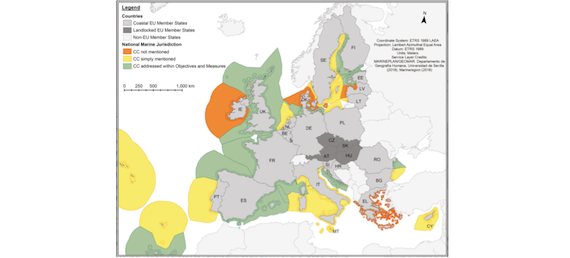Abstract
In the Anthropocene, marine ecosystems are rapidly shifting to new ecological states. Achieving effective conservation of marine biodiversity has become a fast‐moving target because of both global climate change and continuous shifts in marine policies. How prepared are we to deal with this crisis? We examined EU Member States Programs of Measures designed for the implementation of EU marine environmental policies, as well as recent European Marine Spatial Plans, and discovered that climate change is rarely considered operationally. Further, our analysis revealed that monitoring programs in marine protected areas are often insufficient to clearly distinguish between impacts of local and global stressors. Finally, we suggest that while the novel global Blue Growth approach may jeopardize previous marine conservation efforts, it can also provide new conservation opportunities. Adaptive management is the way forward (e.g., preserving ecosystem functions in climate change hotspots, and identifying and targeting climate refugia areas for protection) using Marine Spatial Planning as a framework for action, especially given the push for Blue Growth.

Rilov G., Fraschetti S., Gissi E., Pipitone C., Badalamenti F., Tamburello L., Menini E., Goriup P., Mazaris A., Garrabou J., Benedetti‐Cecchi L., Danovaro R., Loiseau C., Claudet J., Katsanevakis S. (2019) A fast‐moving target: achieving marine conservation goals under shifting climate and policies. Ecological Applications. 30. 10.1002/eap.2009.
